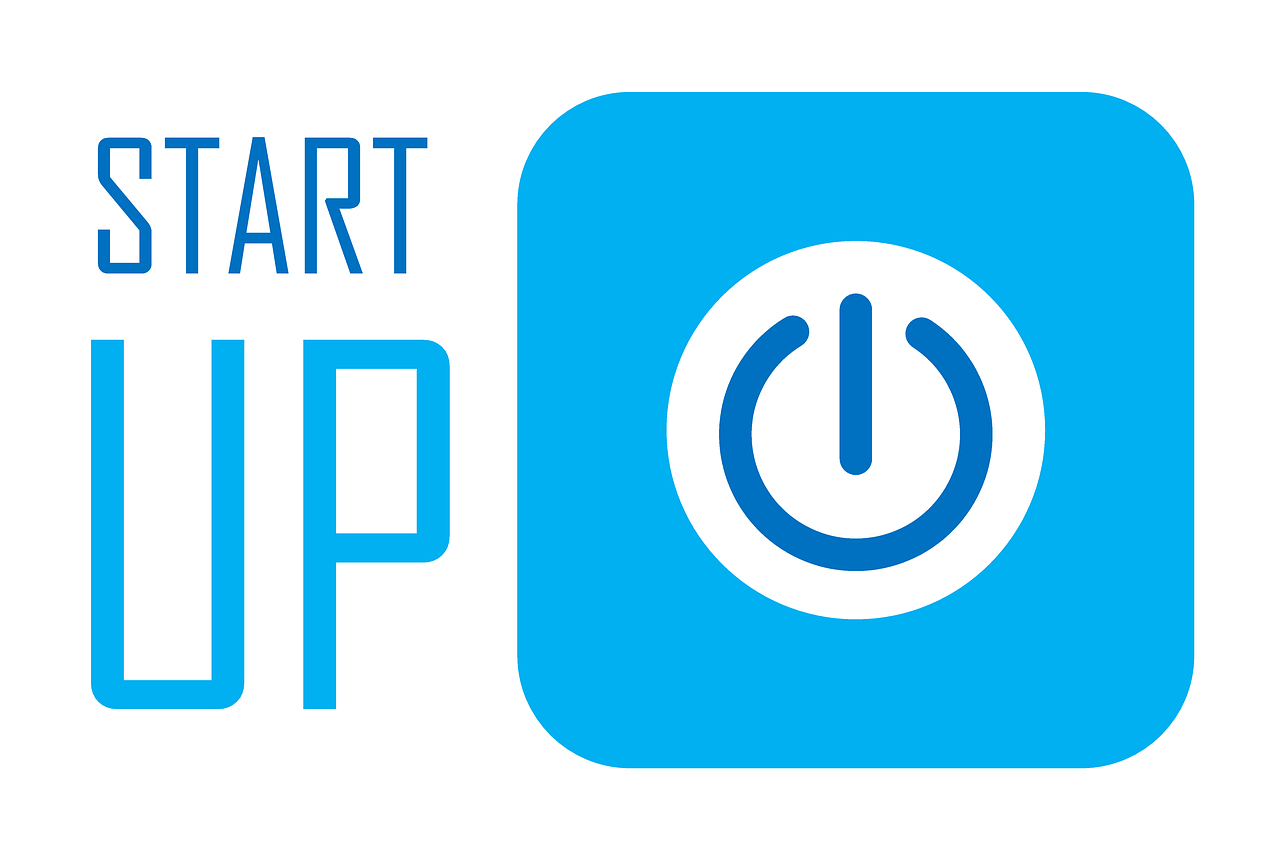In this post, we will show you nine cybersecurity tips for startups.
Cybersecurity breaches can cost a business up to $4.2 million, which is a huge amount of money for startup businesses. Also, cybersecurity breaches result in the loss of customers, leading to a downward trend in revenue generation.
Setting up cybersecurity for a business startup can be quite expensive, but not as expensive as fixing a cybersecurity breach, which can repeatedly happen if the security loophole is not addressed.
For startup business owners, here are cybersecurity tips for startups against cyber threats.
Table of Contents
Cybersecurity Tips For Startups
1. Get antivirus protection for all your devices
Getting antivirus protection is the basis of cybersecurity protection for a startup business. Antivirus programs protect devices from malware infections, which are common attack tools used by hackers. Malware can come from weblinks, portable storage facilities, etc.
Startups do not need a huge capital to enjoy antivirus protection on all of their devices. There are hundreds of robust antivirus software that offer business plans that cover multiple devices for as low as $100 per year.
READ ALSO: F-Secure Antivirus Review
2. Install SSL Certificate for your website
Installing an SSL certificate for your website ensures that customers’ data are safe on your website. This builds trust in your customers, knowing that their data is protected.
SSL certificate encrypts data shared between the customers’ devices and your web server, thus keeping data protected from data breaches.
When you install an SSL certificate on your website, you enjoy better ranking on search engines, web traffic, and better performance online.
3. Train your staff on cybersecurity attacks
Educating your staff is one of the best lines of defense against cybersecurity attacks. Teach your employees about common cybersecurity attacks used by hackers to gain access to a device or network. Your training program should include phishing techniques, DDOS attacks, malware and adware, social engineering, password protection, etc.
4. Don’t hesitate to apply updates for software and apps
Outdated software and apps are major loopholes often exploited by attackers. Hence software and app manufacturers release updates that contain security patches that address security loopholes in previous versions.
Therefore using updated software and app versions keep you protected from vulnerabilities that attackers might exploit.
READ ALSO: The Must Dos And Don’ts For Protecting Your Password And Personal Data
5. Limit administrator access to key users
About 25% of cybersecurity breaches are internal breaches committed by staff knowingly or unknowingly. It is best to limit administrator access to only a few key individuals for accountability. Also, using a strong password and a secure password manager goes a long way in protecting your data.
6. Backup your data
Backing up your data protects you from unforeseen occurrences such as natural disasters and cyber-attacks. In the case of cyberattacks, attackers can use ransomware to hold sensitive business data to ransom.
A scheduled, regular backup plan can protect your data from natural incidences and various forms of cyber attacks in the case of data compromise. Nonetheless, backup services like Acronis True Image can help you recover your data in case of ransomware attacks.
READ ALSO: Full Review of GlassWire Firewall Software – Extreme Network Monitoring
7. Test your cybersecurity defenses
Attackers operate by exploiting loopholes in your defenses. Therefore, it is good to employ a cybersecurity expert to test your defenses to find and plug loopholes that may be exploited by attackers.
8. Use firewall protection
Internal and external Firewalls monitor incoming and outgoing data exchanges between your network and the web. Internal Firewalls scans your network for malware that can potentially breach your security.
External Firewalls are parts of a router or server outside of your network. They screen incoming and outgoing data traffic for malicious data that can cause security compromise in systems. You can use powerful firewall software like GlassWire to protect your devices.
9. Use VPN services to encrypt and protect data traffic
VPN services provide a means of connecting securely to networks. Data channeled through VPN enjoys a robust encryption protocol that keeps out the ‘bad guys’ from snooping and stealing sensitive data sent over the internet.
There are hundreds of inexpensive VPN services you can subscribe to as a startup. Some antivirus subscriptions also include VPN protection in their plans.
READ ALSO: Full PureVPN Review
Cybersecurity Tips For Startups: Frequently Asked Questions
Running a startup is exciting, but securing your data and systems shouldn’t be an afterthought. Here are answers to frequently asked questions to help you navigate cybersecurity from the ground up:
What are the biggest cybersecurity risks for startups?
- Data breaches: Sensitive customer or employee information could be leaked through hacking, malware, or accidental exposure.
- Phishing attacks: Deceptive emails and messages can trick employees into giving away passwords or downloading malware.
- Ransomware: Hackers encrypt your data and demand a ransom to unlock it, disrupting operations and costing money.
- Weak passwords and access controls: Lack of strong password policies and access controls can make it easier for attackers to gain entry.
- Outdated software: Unpatched vulnerabilities in software leave you exposed to known attacks.
What are the essential cybersecurity steps for startups?
- Conduct a risk assessment: Identify your vulnerabilities and prioritize mitigation efforts.
- Implement strong access controls: Use multi-factor authentication and limit access based on need.
- Educate employees: Train them on cybersecurity best practices, including phishing awareness.
- Use strong passwords and password managers: Enforce complex passwords and encourage password managers.
- Keep software updated: Patch vulnerabilities promptly to avoid known exploits.
- Back up your data regularly: Have a reliable backup plan in case of ransomware or data loss.
- Encrypt sensitive data: Protect sensitive information like customer records and financial data.
- Use secure cloud services: Choose reputable cloud providers with robust security measures.
- Have a security incident response plan: Know how to react if a breach occurs.
- Consider cybersecurity insurance: Mitigate financial losses in case of a breach.
Are there any free cybersecurity resources for startups?
Yes! Many government agencies and organizations offer free resources, like:
- US Cybersecurity & Infrastructure Security Agency (CISA)
- National Institute of Standards and Technology (NIST)
- National Cyber Security Alliance (NCSA)
- Open Web Application Security Project (OWASP)
Do I need to hire a cybersecurity professional?
Hiring a dedicated security professional might not be feasible for many startups. However, consider consulting with a security expert for assessments, training, or incident response assistance.
What are some common mistakes startups make with cybersecurity?
- Ignoring cybersecurity until it’s too late: Proactive measures are crucial.
- Underestimating the risks: The consequences of a breach can be devastating.
- Failing to educate employees: Human error is a major cybersecurity risk.
- Reliance on free or weak security tools: Invest in proper protection.
- Not having a plan for responding to incidents: Be prepared to react quickly.
How can I balance security with user experience?
Strong security doesn’t have to impede user experience. Implement multi-factor authentication in user-friendly ways, choose secure solutions that are easy to use, and educate users on the importance of security measures.
What about mobile security?
Secure your mobile devices with strong passwords, encryption, and endpoint security solutions, especially for business-critical devices.
How can I stay informed about evolving cybersecurity threats?
Subscribe to security news feeds, follow cybersecurity experts on social media, and attend industry events.
What if I suspect a cybersecurity breach?
Act quickly! Isolate affected systems, notify authorities and impacted individuals, and seek professional help to remediate the breach.
Is cybersecurity really that important for startups?
Absolutely! Data breaches can cripple startups, leading to financial losses, reputational damage, and legal consequences. Taking proactive steps to secure your data and systems is essential for building trust and ensuring long-term success.
Bottom Line
In conclusion, these cybersecurity tips for startups should help you protect your business against the debilitating effects of data breaches.
Note that security is an ongoing process, not a one-time fix. By implementing these tips, staying informed, and adapting to evolving threats, you can significantly reduce your startup’s cybersecurity risks.
To stay ahead of the game, you have to ensure that you explore all likely avenues of ensuring that your business stays protected from cybersecurity threats. This involves putting all of the above-listed suggestions and staying updated about happenings in the cybersecurity field.
RELATED POSTS
- 16 Best Protection Tools Against Hackers [100% WORKING]
- Why Should Startups Use A VPN? [#4 ANSWERS]
- 12 Worst Data Breaches In History
- 5 Tips To Ensure Your Cybersecurity During Work From Home Era [WFH]
- 20 Best Cybersecurity Business Ideas For Entrepreneurs
- Internet Safety Rules Checklist [MUST READ]
- Exclusive Interview with Mark Stamford, CEO of OccamSec
- Top Reasons Why Your Company Needs Custom Software To Thrive
- The Power of Student Networks: How to Leverage University Connections
About the Author:
Abraham Faisal is a professional content writer. He has a strong passion for online privacy, cybersecurity and blockchain and is an advocate for online privacy. He has been writing about these topics since 2018 and is a regular contributor to a number of publications. He has a degree in Computer Science and has in-depth knowledge of the ever-evolving world of digital security. In his free time, he likes to travel and explore new cultures.












Hi Abraham, The article was amazing and really helpful. The information provided can be very handy for any new business as it shares several key facts to keep the data safe.
However, here is something to add to what you have mentioned, the companies should also beware of email phishing campaigns. Moreover, some people have a habit of clicking on ads and links on webpages, which they should absolutely avoid. While the ads and links might initially not look like a threat, sometimes these websites tend to store the user data and use them unethically.